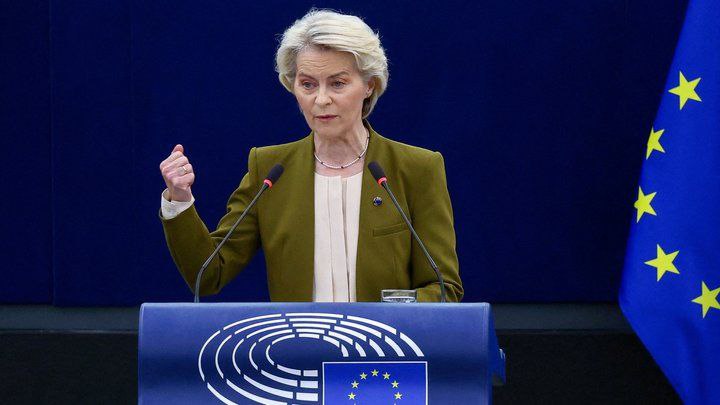EU to Form Intelligence Unit Under Von der Leyen in Major Security Shake-Up

The European Commission is setting up a new intelligence division under the direct supervision of President Ursula von der Leyen.
The Gaze reports this, referring to The Financial Times.
According to officials familiar with the plan, the new body will operate within the Commission’s General Secretariat and recruit specialists from across the EU’s intelligence community.
Its mission will be to consolidate intelligence efforts for common European objectives, reflecting Brussels’ growing ambition to assume greater responsibility for continental security.
The initiative comes amid a profound security reassessment triggered by Russia’s full-scale invasion of Ukraine and U.S. President Donald Trump’s warnings that Washington may scale back its defense commitments to Europe.
These developments have prompted the EU to pursue its most extensive military and security buildup since the Cold War.
“The intelligence agencies of EU countries know a lot. The Commission knows a lot. We need a better way to bring that knowledge together to be effective and valuable for our partners,” one source told the FT. “In intelligence, you have to give something to get something.”
However, the proposal faces resistance within the EU’s own structures. Senior officials from the European External Action Service (EEAS), which oversees the EU Intelligence and Situation Centre (Intcen), are reportedly concerned that the new unit could duplicate Intcen’s role or undermine its mandate.
So far, the plan has not been formally presented to all 27 member states. Nonetheless, it envisions seconding officers from national intelligence agencies to Brussels to foster direct cooperation and data sharing.
A European Commission spokesperson confirmed that Brussels is “exploring ways to strengthen its security and intelligence capacities,” adding that “a dedicated unit within the General Secretariat is one of the options under consideration.”
The concept remains in development, with no fixed timeline, and would “build on the Commission’s existing expertise while working closely with the relevant EEAS services,” the spokesperson added.
Intelligence sharing has always been a sensitive matter in the EU, particularly for major powers like France and Germany that have historically guarded their classified information. In addition, the presence of pro-Russian governments, such as in Hungary, continues to complicate trust and collaboration across the bloc.
Analysts note that concerns over Intcen’s efficiency have been growing, especially in light of Europe’s response to Russia’s hybrid warfare and disinformation campaigns.
As The Gaze reported earlier, European Union member states are considering granting Frontex, the bloc’s border and coast guard agency, new powers to help monitor European airspace and protect critical infrastructure.
Read more on The Gaze: Swarm Strategy: The Future of Deterrence in Eastern Europe